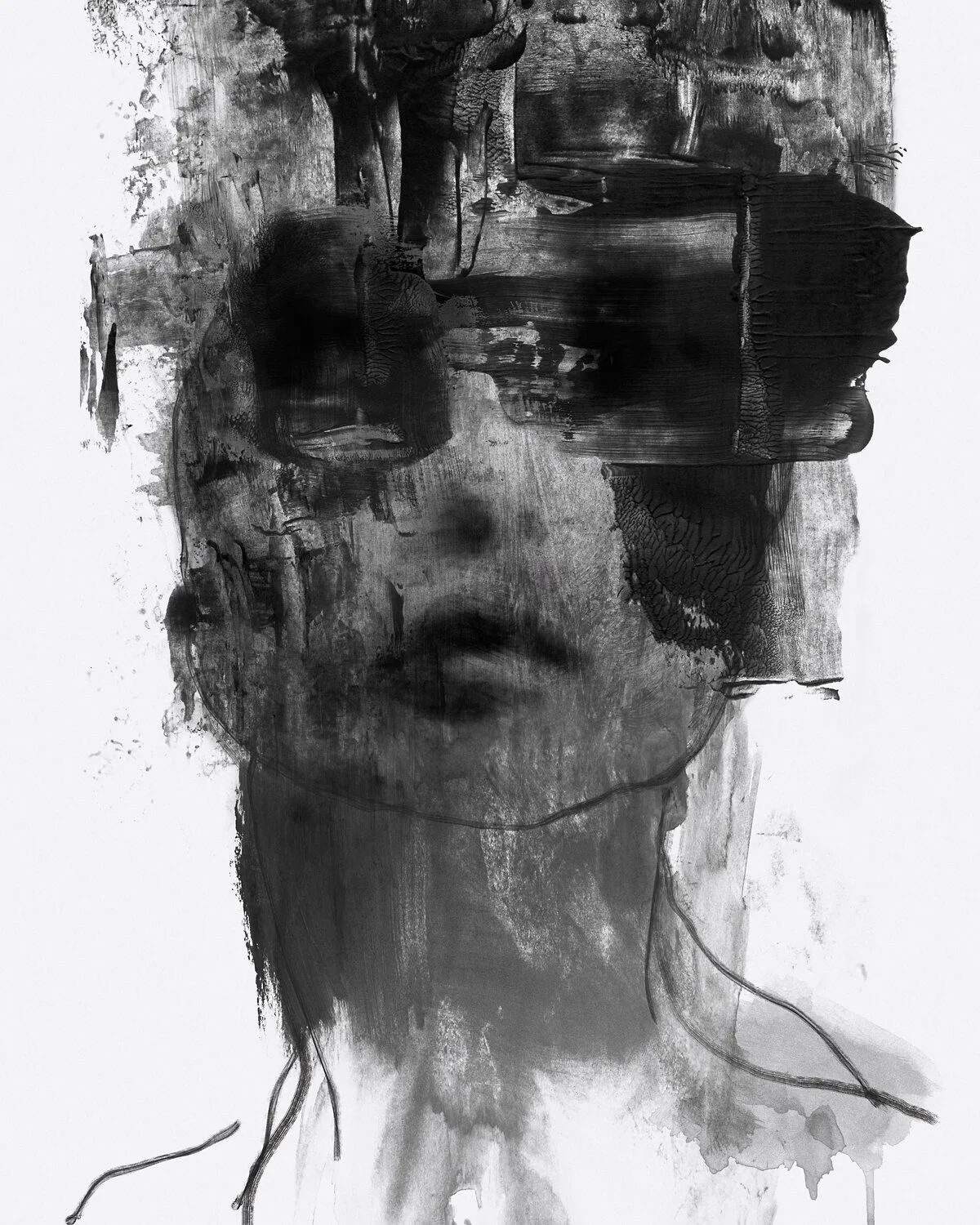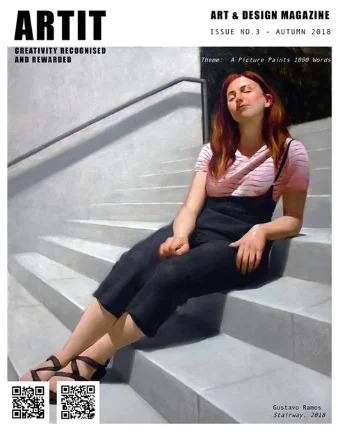Happy to be a featured artist on Artist Portfolio Magazine’s blog!
Some of my work has been published in the Circle Quarterly Art Review's fourth issue.
Print copies are available here https://circle-arts.com/circle_quarterly_4/
My work "Figure V" has been published in the third edition of ARTIT, entitled 'A Picture Paints 1000 words
Some of my work has been published in the Circle Quarterly Art Review's spring issue.
Copies are available in print https://www.peecho.com/print/en/412860
I've been interviewed for the latest issue of CreativPaper!! I thank them for their interest in my work and for graciously including me in their magazine, which can be seen here:
CreativPaper 03
There are a couple of questions and answers that were left out of the printed version of the interview (but will appear on their website), for issues of space.
One question they asked me that was left out of the magazine edit regarded whether I think art is more about the artist or the viewer and who I think it should be about. I did like this question and my response. I think it should be a little insightful to anyone who may happen to be interested in my work and outlook, so I've decided I may as well include it here:
I don’t really believe in “should” too much, where it applies to art. If there is a “should” that I believe in concerning art, it’s that it should be an honest expression. If you absolutely hate painting puppies with rainbows, but have made a career doing so solely for the sake of the viewer, because you think it will sell paintings, then I am not sure that is art.
Generally speaking however, when someone begins to preach about what they think art “should” be, my first reaction is an internal rolling of the eyes. I don’t see why it can’t be both really. I think both the viewer and the artist are integral.
I don’t think the artist’s intent can ever be totally separated from the art they have created because she/he has brought all their ideas, interests, obsessions, theories, life experiences, etc. and filtered it into that piece of art. That specific work would not exist were it not for that specific creator. However, I also think what the viewer brings to the work when they view it, is valid, even if it’s very different from the artist’s original intent. Especially with work that is not just a straightforward clinical representation of something. If the artist’s intent was to convey sadness, but a specific viewer sees the work and experiences contentment, who is to say that viewer is “wrong” in their interpretation? That was their valid impression, which was influenced by everything personal that he/she is bringing to the viewing of that work.
There have been many times when I have gone to a museum or gallery with someone who appreciates art, but is maybe a little less knowledgeable about art theory and art history. At first they are hesitant with offering their impression or thoughts on a piece because they are afraid of getting it “wrong”. I think that usually hinders the experience of the viewer. In these cases, when I have assured them that there is no right or wrong interpretation, you can see the whole experience become more fulfilling for them.
Personally speaking, I don’t really create my work with too much conscious concern about the viewer. Creating art, for me, is a very personal journey and is about my own self-expression. I try to create art that I personally like and believe is interesting. My work may never garner much recognition, or yield much in terms of the typical definitions of success; that won’t change my course. I don’t create art for the approval of others, I create because I must. I cannot live without creating my art. Obviously, I hope that people will agree and like my work in the end, and I experience disappointment if they don’t, but this is not in the forefront of my mind when I am creating it. When I am creating, it is the ideas and/or feelings that are within, that I am concerned with.
This however does not, in my opinion, negate the importance of the role of the viewer. I like to create work that is either open to interpretation by the viewer or conveys an overall feeling or emotional impression; or even work that is purely aesthetic. I prefer the viewer to be able to bring her/his experience and imagination to it. This is the kind of work I gravitate to most as a viewer myself, and what I like to create. I find it interesting when someone views a work of mine and their interpretation or their impression is radically different than the concept or emotions that were going on in my head when I was creating it. My reaction is usually one of “I never even thought of that”; a feeling of wonder, rather than a feeling of failure of intent.
I like duality and I like paradox. I believe that seemingly opposing ideas can coexist. I think art is multilayered and is many things at once. I don’t believe art should be either about the viewer or the artist, it can be both at once.


